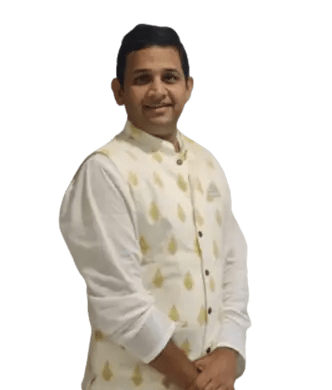
Aditya Abburi
Associate Professor
aditya.abburi@mahindrauniversity.edu.in
Dr. Aditya Abburi is an Associate Professor in the Electrical & Electronics Engineering Department at École Centrale School of Engineering, Mahindra University. Dr. Aditya did his Doctor of Philosophy in Nanoelectronics from University of Idaho, Moscow, USA. Prior to joining MU, he worked as an Assistant Professor in the Department of Electronics and Communications Engineering at the School of Engineering and Applied Sciences, Bennett University.
2007-2012
- Aug 2007 to May 2012: Doctor of Philosophy, University of Idaho, Moscow, USA Nanoelectronics (Department of Physics)
Dissertation Title: Nanoporous Metals and Applications
Supervisor: Dr. Wei Jiang Yeh
2004-2007
- Aug 2004 to May 2007: Master of Engineering, University of Idaho, Moscow, USA Department of Electrical and Computer Engineering
Thesis Title: Electrical characterization of polymer nanowires for aqueous sensor applications
Supervisor: Dr. Eric Aston
2000-2004
- Sep 2000 to May 2004: Bachelor of Technology, Department of Electrical and Electronics Engineering VITAM, Visakhapatnam – Affiliated to JNTU, Hyderabad.
July 2018- Present
- July 2018- Present, Associate Professor, École Centrale School of Engineering, Mahindra University
2018-2016
- Jun 2016 to July 2018: Assistant Professor, Department of Electronics and Communications Engineering, School of Engineering and Applied Sciences, Bennett University.
2014-2016
- Apr 2014 to May 2016: Assistant Professor, Department of Electronics and Communications Engineering, School of Engineering and Technology, BML Munjal University.
2012-2014
- Sep 2012 to Mar 2014: Assistant Professor, Department of Physics, Galgotias University, India.
2012
- May 2012 to Aug 2012: Instructor, Department of Physics, University of Idaho, USA.
2007-2012
- Jan 2007 to May 2012: Research Assistant, Experimental Condensed Matter Physics Lab, Teaching Assistant, Department of Physics, University of Idaho, Moscow, USA.
2005-2006
- May 2005 to Dec 2006: Research Assistant, KECK Nanotech Lab, Department of Chemical Engineering, University of Idaho, Moscow, USA.
2020
2019
2018
2017
2017
2013
2012
Aditya Abburi, Nathan Abrams, Wei Jiang Yeh, "Synthesis of nanoporous platinum thin films and application as hydrogen sensor," Journal of Porous Materials. DOI: 10.1007/s10934-011-9503-8 (Impact Factor: 1.4) (2012)
2011
Aditya Abburi; Harold Fairweather Jr; Wei Jiang Yeh, "Temperature and Pore Size Dependance of a Nanoporous Platinum Thin Film based Hydrogen Sensor," American Physical Society, 13th Annual Meeting of the Northwest Section of the APS, Oct 20-22, 2011.
2010
Aditya Abburi; Brandon Fosso; Eric Colegrove; Wei Jiang Yeh, "Synthesis of nanoporous platinum thin films by dealloying copper from Cu80Pt20,"American Physical Society, APS March Meeting 2010, March 15-19, 2010.
Nathan Abrams, Aditya Abburi , W.J. Yeh , "Nanoporous platinum: synthesis via dealloying," American Physical Society, 12th Annual Meeting of the Northwest Section of the APS, Oct 1-2, 2010.
Dr. Abburi’s research interests include the fabrication and study of functional materials at nanoscales engineered for sensor-based applications. Currently, his research interest is focused on bulk manufacture of nanomaterials from by-products of fertilizer industry.
His doctoral research was on the fabrication of nanoporous metals using a method of dealloying and coarsening and the study of using nanoporous platinum thin films as hydrogen sensors. His primary during his MS was on the feasibility of using non-conducting and semiconducting polymer nanowires as aqueous chemical sensors.
Dr. Abburi’s interests include fabrication of quasi-one-dimensional nanostructures such as nanotubes, nanobelts, nanoporous thin films or nanoribbons. These are extremely useful to a number of engineering applications for their high surface-to volume ratio. These types of materials are therefore applied to variety of adsorption-based gas sensing. These materials can be synthesized by thermal/ plasma techniques as well as low cost solution-based techniques.









